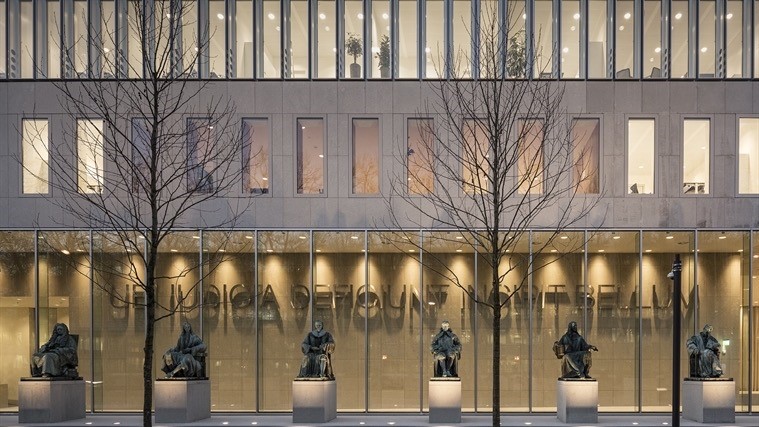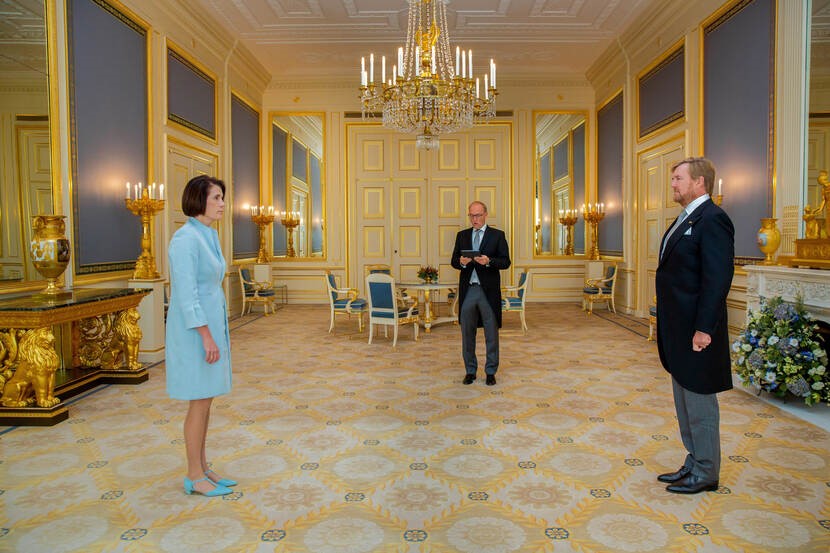First female president of the Supreme Court
A notary is an office. A profession. A position. The notary is a lawyer. He studied notarial law at a Dutch university and then successfully completed the Notary Professional Training program. The word "notary" comes from Latin and is derived from the word "notare," which means "to write." In Roman times, public scribes sat in the marketplace and recorded deeds for, often illiterate, private individuals. Over the centuries, the notary has evolved into a legally trained public official. He—and fortunately, increasingly, a she—is a legal advisor. A specialist in (one of) the practice areas of family law, corporate law, and real estate law.
The public office of notary entails the authority to execute authentic deeds when mandated by law or required by a party, and to perform other duties assigned to them by law. Although appointed by royal decree, notaries practice their profession at their own expense and risk. They are therefore both a public official and an entrepreneur and must therefore always navigate the dynamics of the free market and the legal framework, including the Notary Act and the professional and conduct rules.
Civil-law notaries advise, draft, and execute notarial deeds. Notarial deeds are documents in which agreements and declarations are legally recorded. Certain agreements or declarations must be included in a notarial deed. Only then are they valid. Once signed by the notary, the date of the deed is binding on everyone. And everyone can trust that the deed was signed by the listed signatories. In providing their services, the notary is guided by the law.
What is the right?
Law is the system of rules that governs society. The law is broadly established and evolves with societal changes. This evolution doesn't happen automatically. New situations and circumstances constantly arise for which the law doesn't offer ready-made solutions. Sometimes new insights emerge, for example, about what is just. In such cases, direction must be provided, decisions must be made about how to deal with such a new situation, and decisions must be made. That is the task of the Supreme Court.
What is the Supreme Court?
The Supreme Court is the highest court in the Netherlands in civil, criminal, and tax law. The Supreme Court is a cassation court, and appeals to the Supreme Court are exclusively concerned with incorrect application of the law by the district court and the court of appeal. The Supreme Court's primary task is to safeguard the unity of the law and its development.
Composition of the Supreme Court
The Supreme Court is located next to the Malieveld, on Korte Voorhout in The Hague, the city of peace and justice, in a building designed by Kaan Architects, where safety, transparency, quality, and modesty come together beautifully and skillfully.
First female Supreme Court President appointed
King Willem-Alexander recently sworn in Prof. Drs. G. (Dineke) de Groot as President of the Supreme Court of the Netherlands. The appointment takes effect on November 1, 2020. Dineke de Groot is the first female President of the Supreme Court.
Diversity, inclusion and equal opportunities
At MAES civil-law notaries, we are convinced that organizations benefit from employing people from diverse backgrounds. We actively recruit, retain, and promote a diverse group of employees within our firm because we believe in quality, regardless of race, gender, nationality, religion, or sexual orientation. In doing so, we strive for a stimulating work environment—one characterized by diversity, inclusivity, and equal opportunities. Partly against this backdrop, we are delighted with the appointment of Dineke de Groot. She will prove to be a role model for many. The five legal scholars—Van Bynkershoek, Huber, De Groot, Van Leeuwen, and Voet, whose statues stand in front of the Supreme Court building and who seem to posthumously watch over the institution—would certainly wholeheartedly endorse this.
#diversity #inclusivity #equalopportunities #girlpower


Services
See also

Why MAES notaries

